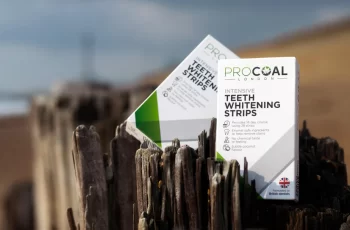
Can I Use Vitamin C Serum and Rosehip Oil Together?
There’s no denying that rosehip oil is one skincare ingredient that still feels a little confusing, I have so many of you messaging me asking how to use it, or whether you should bother introducing it in the first place. Well, before we focus on the topic at hand today, let me quickly cover what the benefits are of rosehip oil. Those of you who are already clued up, you lot can skip to the next part.
What are the benefits of rosehip oil?
Rosehip oil is packed with nourishment and goodness for the skin. Here are some examples of the different benefits you can expect to see when using rosehip in your daily routine.
Linoleic acid- One of the lesser-known acids, linoleic acid is highly beneficial and fatty acid for the skin. It is extremely hydrating, calms irritation, and can combat acne and other breakouts on the skin. You’ll find that rosehip oil made up of 60% linoleic oil and delivers a great deal of moisturisation for the skin.
Antioxidants- Rich in antioxidants, such as vitamins C and E, you’ll find you are able to combat any damage caused by free radicals. Rosehip oil can ward off any damage caused by exposure to free radicals, such as pollution, central heating, bad weather and other environmental aggressors. All of which damage the protective barrier of the skin and develop into concerns such as premature ageing, dark spots, and lack lustre complexion.
Vitamin A- Better known as retinoids, vitamin A is a highly potent antioxidant that can fight any sign of free radical damage whilst increasing the speed of skin cell turnover.
There you have a little more information about rosehip oil and its benefits for the skin, now we can move onto finding out how we can team it with one of our favourite antioxidants, vitamin C.
Which is better rosehip serum or vitamin C serum?
This is very much dependant on what skin goals you are wanting to achieve with each of these formulas. For example, if you are wanting to target hyperpigmentation, dark spots, or uneven skin tone, then vitamin C serum is the best option due to its high levels of potency. If it lacks moisture and dehydration are your main skin concerns, then rosehip oil is the best for your skin as the additional extracts of fatty acids and nourishing vitamins will help lock moisture into the skin.
If you are wanting to use both ingredients in your daily routine, I suggest alternating the time of day you apply each formula. This is the easiest way for the skin to build its tolerance to new ingredients and avoid unwanted irritation and reactions. If you wanted my advice, I would suggest applying your vitamin C serum during your morning routine, then following this with your rosehip oil in the evening to rejuvenate the complexion whilst you catch up on your beauty sleep.
Can I use rosehip oil after serum?
Yes, you can use rosehip oil after a serum, ideally you want to opt for one that is packed with hyaluronic acid or glycerin to lock in moisture. I would also suggest applying rosehip oil after a moisturiser as general rule of skincare product application is to apply thinnest consistency to the thickest. By layering these formulas enriched in these potent powerhouses, you are replenishing the skin and giving it an opportunity to regenerate after a day of being exposed to free radicals and other skin aggressors.
When should I apply rosehip oil to my routine?
I have briefly mentioned this in the previous section, but the best way of applying your skincare products is to start with the lightest formulas, these tend to be cleansers, and exfoliating toners, and working your way up to thicker formulations.
You’ll often find that products such as serums and oils have a higher concentrate and need freshly cleansed skin to penetrate the lower layers of the skin. You can then follow this with a moisturiser as this will create a protective barrier over the skin and adding extra protection and allowing the other actives to work undisturbed.
Can rosehip oil cause breakouts?
Not really, this is because although it carries the name “oil” the main difference is the fact it is a dry oil, this means it is able to absorb into the skin rapidly. Unlike other oils that can often clog the pores and lead to breakouts, such as whiteheads, blackheads, and other blemishes, rosehip oil can be used without concern.
If you find you have an oily skin type that is prone to frequent breakouts, try not to be put off using rosehip oil as it delivers so many benefits for the skin. I understand that is can feel daunting to apply oil to an oily skin type however, which is why it’s always a good idea to seek the advice of a dermatologist or trained professional.
Can I mix rosehip oil with hyaluronic acid?
Absolutely, in fact, I would encourage a mixture like this! The hydrating benefits of hyaluronic acid will not only support the traits of rosehip oil but boost the protection of the skin. The best way to reap the rewards is to cleanse the skin, apply a serum enriched in hyaluronic acid, moisturise, then follow this with rosehip oil. Doing this will lock moisture into the protective skin barrier and keep the complexion in its healthiest state.
I hope that is blog post has answered any questions you had about using rosehip oil and vitamin C serum together. My final advice would be to remember everyone’s skin is different and although some ingredients may work wonders for your friends, may not have the same results for you. This isn’t anything to worry about as it just requires a little more work and in no time, you’ll have an effective routine that will leave you with the healthiest skin and glowing complexion. Don’t forget, if skin is your thing, then please come and follow us on Instagram for more.


